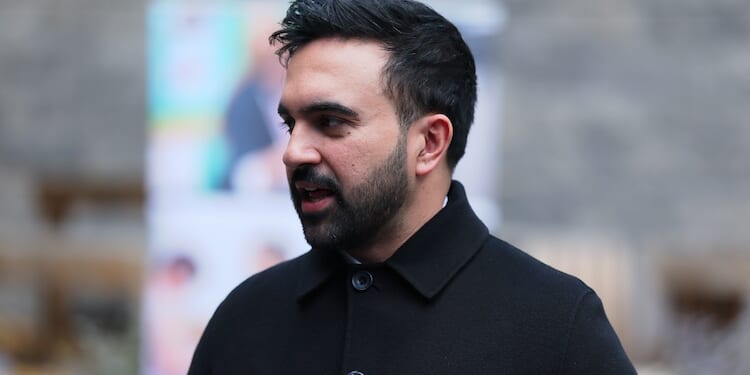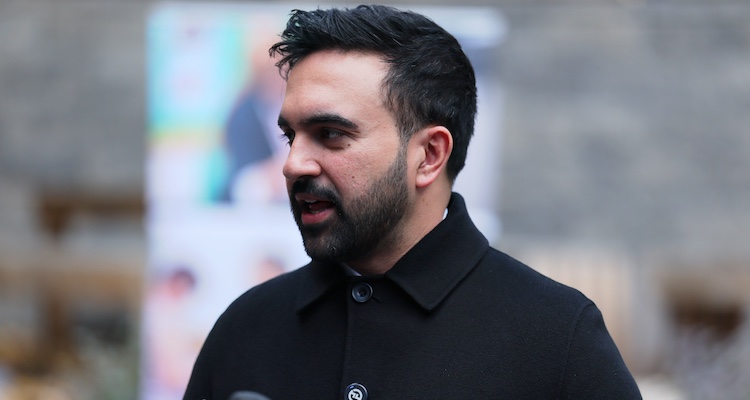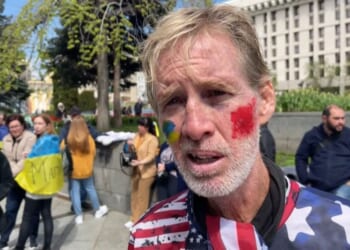Incoming New York Mayor Zohran Mamdani is reiterating his promise to be an anti-Zionist vigilante while in office by lawlessly arresting Israeli officials he doesn’t like. Marjorie Taylor Greene couldn’t get through a public comment about President Trump and the Epstein files without insinuating that Trump is essentially an Israeli agent. Rashida Tlaib is leading an attempt to secure a place in the congressional record for a modern blood libel. And the influential darlings of the podcast world are openly threatening American Jews.
You would think the Jew-baiters would be less cranky. After all, the cease-fire has enabled a period of calm and the return of Israeli hostages and the importation of even more food into Gaza, and the United Nations Security Council has just ratified Trump’s Israeli-Palestinian peace plan.
But in fact the prospect of peace and the talk of coexistence are what really bothers the Mamdanis and the Tlaibs and the Greenes and the Tucker Carlsons of the world.
These figures, and the many like them, are ruled by incentives. The politicians among them have crafted, and been crafted by, a self-rewarding incentive carnival that makes it easier for them to win political support by engaging in conspiracist lunacy. The pundits, meanwhile, are incentivized more directly by a system of clicks and algorithms that make their tinfoil-hat shows more valuable.
And so the result is the confirmation of something most of the Jewish community intuitively understood soon after October 7, 2023: We have entered a new normal.
The cease-fire and peace plan haven’t stopped the Hollywood blacklists, the exclusion of Jews from athletics and fandom, attacks on Jewish tourists, the picketing of Israeli music performances, anti-Jewish discrimination in education, etc. But like every wave of anti-Semitism, the Jewish world has the tools and the resilience to push back. The challenge can be met so long as we make an honest assessment of it.
Two recent stories demonstrate how this realization is settling in across the broader Jewish community. One is the recent account of Rahm Emanuel, the former Democratic congressman and Chicago mayor who is contemplating running for the Democratic presidential nomination in 2028, speaking to the Jewish Federations general assembly. Emanuel made the case for adapting to the new political narrative around Israel: “For the generation under 30, the last two years will be as seminal a definition as what the Six-Day War was for those six days for a generation. We have our work cut out for us.” It was an attempt to warn the Jewish American audience that 2028 is going to be, especially on the Democratic side, a parade of anti-Israel rhetoric. But it was also an acknowledgement that we aren’t the naive fools our pursuers think we are.
Another story is in the Times of Israel, and it’s about that erstwhile Diasporic golden land of Canada: “According to a report published by B’nai Brith Canada in April, Canadians experienced 6,219 antisemitic incidents in 2024, or an average of about 17 incidents of harassment, vandalism and violence per day. That was 125% higher than in 2022, and about 7% higher than in 2023, when hatred exploded after October 7.”
Says Noah Shack, the CEO of Canada’s umbrella organization for Jewish federations: “Now, we’re seeing synagogues firebombed, shootings at schools, people assaulted, and discrimination and hate in schools, universities and in the workplace. This isn’t just about our community, it’s about the threat that this extremism poses to the Canadian way of life.”
Solutions are harder to come by than realizations, but the realizations are the essential first steps. As expected, the post-Oct. 7 world is a different place, and navigating that new world requires every Jewish leader and organization to acknowledge what has changed.
We see one example of this playing out right now. The Anti-Defamation League has taken steps to refocus on anti-Semitism after years of sacrificing its founding mission for a chance to be part of the progressive political coalition. ADL launched a “Mamdani Monitor” which consists of an anti-Semitism tipline for New Yorkers and a pledge to scrutinize the Mamdani administration’s actions and appointments. It’s an entirely reasonable, moderate approach, and it could be useful so long as the ADL follows through. The emerging Jewish consensus that bad actors must be held to account is healthy.
But it has inspired anger from, for example, the Nexus Project, a liberal critic of attempts to fight anti-Semitism and, though young, a relic of the pre-Oct. 7 status quo. Jill Jacobs, an activist with another progressive Jewish group, called the ADL “Islamophobic.”
Still, these attempts to conjure the naïve and dangerous fantasies that were shattered on Oct. 7 haven’t had much effect; reality is reality, and the Jewish community has been clear-eyed. As Emanuel said, “[I]f we don’t understand the depth of where we are, we’re never going to fix the problem.” The new normal isn’t pretty, but we don’t have to let it become permanent.


















